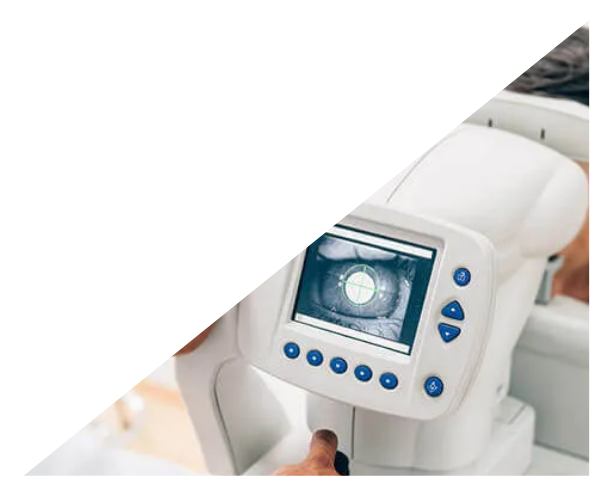Home » The challenges »

To cure type 1 diabetes, we need to find a way to give people healthy, long-lasting beta cells so they can make their own insulin again.
In type 1 diabetes, the immune system attacks and destroys the cells in the pancreas that make insulin, called beta cells. This means people don’t produce enough insulin and they must do the job of their pancreas with relentless blood sugar checks and insulin dosing to keep their blood sugar levels in a healthy range.
One part of a solution to curing type 1 diabetes involves supplying individuals with healthy new beta cells so they could produce their own insulin again, and the Grand Challenge is supporting research that will help achieve this goal.
The Challenge
Islet transplants, where pancreas cells from donors are transplanted into people with type 1 diabetes, already exist and are used to help some people who have regular and severe hypos. They have the potential to be life-changing and life-saving, but currently this treatment is far from a cure. The relentless immune attack and hostile environment inside the body means transplanted cells quickly die off. There’s also a critical shortage of donor cells available, which restricts how many people can have this treatment.
One way to produce lots of beta cells is to grow them in the lab from stem cells, a type of cell in our body that can just become different types of cells. Early trials testing transplants of beta cells grown from stem cells are underway. But the lab-grown beta cells don’t do as good a job as real beta cells at managing blood sugar levels, so researchers are working to improve the quality of lab-grown beta cells.
The Type 1 Diabetes Grand Challenge is funding £30 million into beta cell therapy research and calling on the diabetes research community to work together to advance new treatments that replace or rescue beta cells.
We’re supporting scientists to innovate techniques that help beta cells to survive and thrive, radically improve how beta cells are grown in the lab, and increase the success and longevity of transplants. We’re also backing fresh thinking that helps to fast-track progress towards rescuing or regrowing the body’s own beta cells.
Dr Elizabeth Robertson, Director of Research at Diabetes UK, said:
“By helping people make enough of their own insulin again, beta cell treatments would spell the end of insulin injections or pumps and constant blood sugar checks, along with helping to prevent devastating diabetes complications. The investment from the Steve Morgan Foundation will be a catalyst that enables scientists to tackle this challenge in renewed and inventive ways to speed up progress and provide fresh hope of a cure for everyone living with type 1 diabetes.”
Building better beta cells for transplantation
Although lots of progress has been made in recent years, lab-grown cells just aren’t as good at producing insulin or responding to changing blood sugar levels as real beta cells. That’s why we’re supporting research to improve lab-grown beta cells.
Professor Shanta Persaud and Dr Aileen King are using their expertise in human pancreas development to improve the process of turning stem cells into beta cells. They are aiming to help these lab-grown beta cells produce the right amount of insulin and survive transplantation.
We’re also funding a team of scientists in London and Munich, who are looking at tiny molecules in beta cells to understand their role in making them function well, and if these molecules can be used to improve the quality of lab-grown beta cells.
Protecting beta cells during and after transplantation
Our researchers are also looking at innovative ways to shield transplanted cells from the immune system, to help them survive and thrive for as long as possible. From developing devices that protect transplanted beta cells, to equipping them with survival tools, and drawing inspiration from unexpected sources – like brain cells and insect saliva – to enhance their resilience.
Find our beta cell therapy research studies on the funded projects section of our website under ‘Beta Cell Therapy Programme Grant’ and ‘Senior Research Fellowships’.
Regrowing beta cells in people with type 1 diabetes
Another promising area of research is focusing on ways to stimulate the body’s ability to grow new beta cells. Most individuals with type 1 diabetes retain a small number of surviving beta cells, which could hold the key to regenerating lots of healthy beta cells in the pancreas. Treatments that encourage beta cell growth and self-renewal could eventually eliminate the need for transplants.
Dr James Cantley’s team is working towards growing new beta cells and encouraging surviving beta cells to replicate directly in the pancreas of people with type 1 diabetes. Meanwhile, a team of scientists based in Birmingham and Leibniz are exploring whether it’s possible to encourage other cells in the pancreas, called alpha cells, to transform into beta cells.
Ultimately, these projects could lead to new treatments to restore beta cell function in people with type 1 so they can make their own insulin again.



Putting people affected by type 1 diabetes at the heart of research.
The Type 1 Diabetes Grand Challenge brings together scientists and the type 1 community to drive forward progress in areas that matter most to people with type 1.



